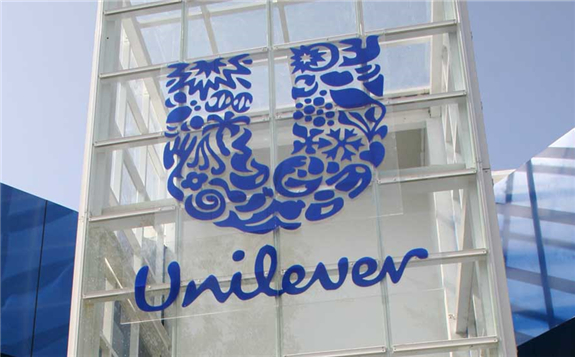British multinational consumer goods company Unilever has partnered with carbon capture technology company LanzaTech and chemical manufacturing firm India Glycols to reduce the carbon footprint of the manufacturing of its products.

As a result of the partnership, Unilever has managed to transition away from fossil fuels by using captured carbon emitted from industrial activities to produce its surfactant.
Typically derived from fossil fuels, surfactants are a critical ingredient for creating the foam and cleaning action of many household cleaning and laundry products, from dish soaps to fabric detergents. The new process now allows surfactants to be made using recycled carbon.
The breakthrough process involves primarily three stages:
Capture: LanzaTech provided its biotechnology to capture waste industrial emissions at its Beijing Shougang LanzaTech plant in China and converted these emissions to ethanol. The process LanzaTech is using to create ethanol from captured carbon cuts the GHG emissions from this process by 82% compared to the traditional fossil-fuel process.
Conversion: India Glycols Ltd converted the ethanol into ethylene oxide, a key feedstock to make surfactants at their site in India.
Formulation: Unilever then used the surfactant in the new OMO laundry capsules, manufactured at its Hefei factory in China.
The process marks the first time a surfactant made using captured carbon emissions will come to market in a cleaning product. The new surfactant will be used in an OMO (Persil) laundry capsule, which was launched in China on April 22nd. The launch of the Unilever product comes at a time when there are increasing calls for China, the world’s highest carbon emitter due to increased industrial activities, to reduce its carbon intensity. China has however pledged to achieve net-zero carbon by 2060.
A study conducted by Unilever on its consumers from 2020 found that 87% of consumers in China considered climate change as serious a threat as Covid-19.
Peter ter Kulve, president of home care, Unilever said: “Advancements in technology like this mean we can now reinvent the chemistry of our products. Instead of valuable carbon being released directly into the atmosphere, we can capture it and recycle it in our products instead of using fossil fuels.
“We want to make sustainability easy for everyone that uses our products. New innovations like this help move our iconic cleaning brands away from fossil fuels without compromising on performance or affordability. We’re excited by the potential that this breakthrough represents for future innovations across our portfolio and our industry.”
Unilever participated in the project as part of its Clean Future strategy in which the company seeks to eliminate fossil fuels in its product manufacturing processes by 2030.